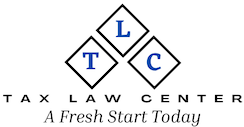Payroll tax in Utah: What employers need to know [2024]
Payroll Tax in Utah: What Employers Need to Know [2024]
Managing payroll taxes in Utah can be intricate due to the balance required between federal and state regulations. Despite Utah’s relatively straightforward tax system, it demands careful attention to avoid potential penalties. This guide provides a detailed overview of the essential aspects of Utah payroll taxes, including the various types of taxes, applicable rates, and necessary filing procedures. Understanding these components is crucial for ensuring compliance and smooth business operations.

Overview of Utah Payroll Taxes
Utah’s payroll tax system comprises several key components that employers need to manage carefully:
Unemployment Insurance Tax
- Purpose: Provides financial support to employees who lose their jobs through no fault of their own.
- Administered By: Managed by the Utah Department of Workforce Services.
- Who Pays: Paid solely by employers.
- Rate: Ranges from 0.3% to 7.3%, with new employers starting at a standard rate. This rate adjusts based on the employer’s experience rating, which is influenced by the number of unemployment claims filed by former employees.
- Taxable Wage Limit: This applies to the first $47,000 of each employee’s annual wages. Wages beyond this amount are not subject to the tax.
Income Tax Withholding
- Administered By: Overseen by the Utah State Tax Commission.
- Who Pays: Employees, with the tax withheld by employers.
- Rate: A flat rate of 4.65% applies to all income levels, simplifying the calculation compared to tiered systems in other states.
- Taxable Wage Limit: No cap; the rate applies to all taxable income.
FICA Taxes
- Purpose: Funds Social Security and Medicare benefits for retirees, disabled individuals, and survivors.
- Who Pays: Both employers and employees contribute equally.
- Rate: Social Security tax is 6.2%, and Medicare tax is 1.45% for both parties. An additional 0.9% Medicare tax applies to high earners (over $200,000 for individuals or $250,000 for married couples filing jointly).
- Taxable Wage Limit: Social Security applies to the first $168,600 in wages for 2024. Medicare taxes have no limit, but high earners face an additional 0.9% tax.
Filing and Payment Deadlines
Timely filing and payment of payroll taxes are crucial to avoid incurring penalties. Below are the deadlines for various payroll taxes in Utah:
- Unemployment Insurance Tax: This tax is due on a quarterly basis. The specific deadlines for filing and payment are:
- First Quarter (January – March): Due by April 30
- Second Quarter (April – June): Due by July 31
- Third Quarter (July – September): Due by October 31
- Fourth Quarter (October – December): Due by January 31
- Income Tax Withholding: The deadlines for income tax withholding depend on the size of the business:
- Monthly Filers (Small Businesses): Payments are due by the 15th of the following month.
- Semi-Weekly Filers (Larger Businesses): Payments are scheduled based on the federal tax deposit schedule, which varies depending on the day of the week payroll is processed.
Late payments can result in penalties ranging from 2% to 10% of the unpaid tax amount, depending on the length of the delay and the amount owed.
How to Submit Payroll Taxes in Utah
Utah provides several methods for submitting payroll taxes. Choosing the appropriate method is essential for ensuring compliance and smooth operation:
Online Tax Services
- Utah’s Taxpayer Access Point (TAP): This comprehensive online platform allows employers to manage various aspects of payroll tax administration. Through TAP, employers can:
- Make tax payments
- File returns and make adjustments
- Register, close, or update business tax accounts
- Report new hires
- Manage tax credits
- Utah’s Taxpayer Access Point (TAP): This comprehensive online platform allows employers to manage various aspects of payroll tax administration. Through TAP, employers can:
Electronic Funds Transfer (EFT)
- EFT Payments: Employers can use Electronic Funds Transfer to make tax payments directly from their bank accounts using ACH debit or credit. This method ensures timely and accurate payments and is often preferred for its convenience and security.
- EFT Payments: Employers can use Electronic Funds Transfer to make tax payments directly from their bank accounts using ACH debit or credit. This method ensures timely and accurate payments and is often preferred for its convenience and security.
Mail
- Traditional Mail: Payments can also be sent via conventional mail to:
- Utah State Tax Commission
- 210 North 1950 West
- Salt Lake City, UT 84134-0266
- Traditional Mail: Payments can also be sent via conventional mail to:
Special Payment Options
- Credit Card Payments: Available through the Utah State Tax Commission website, though processing fees may apply.
- Check Payments: Accepted following specific guidelines provided by the Utah Department of Workforce Services.

Legal and Compliance Considerations
Understanding and adhering to Utah payroll tax laws is essential for avoiding penalties and ensuring compliance. Key regulations include:
- Minimum Wage: The current rate is $7.25 per hour.
- Breaks and Meal Periods: While not mandated by state law, many workplaces provide short breaks.
- Pay Periods: Employees must be paid at least bi-monthly.
- Final Pay: Must be provided on the next regular payday or within 24 hours of request.
Key Points to Remember
- Attention to Detail: Ensure accuracy in managing payroll taxes to avoid errors and penalties.
- Due Dates: Stay informed about deadlines for submitting payroll taxes to prevent late fees.
- Tax Rates: Keep updated with current tax rates for both unemployment insurance and income tax withholding.
- Filing Methods: To file and pay taxes, use appropriate filing methods, such as online services, EFT, or mail.
- Regular Updates: Check for updates from the Utah State Tax Commission and the Department of Workforce Services regularly.
- Compliance: Ensure all payroll processes adhere to state and federal tax regulations to maintain smooth operations.
Frequently Asked Questions
What are the penalties for late payroll tax payments in Utah?
Late payments can incur penalties ranging from 2% to 10% of the unpaid tax amount. The exact penalty depends on the duration of the delay and the total amount owed. Adhering to deadlines is essential to avoid these penalties.
Can Utah payroll taxes be adjusted after filing?
Yes, employers can file adjustments through Utah’s Taxpayer Access Point (TAP) if errors are discovered after submission. Correcting any mistakes promptly is essential to avoid potential issues.
Are there specific payroll tax exemptions for small businesses in Utah?
Utah does not provide specific exemptions from payroll taxes for small businesses. However, small companies may have different filing schedules or thresholds for certain tax types, such as income tax withholding.
How does Utah’s minimum wage impact payroll taxes?
The minimum wage in Utah is set at $7.25 per hour, in line with the federal minimum wage. This rate impacts payroll calculations, ensuring that employees are compensated appropriately and that all tax obligations are met.
What should I do if I receive a notice of audit from the Utah State Tax Commission?
If you receive an audit notice, it’s crucial to respond promptly and gather all required documentation. Consulting with a tax professional can help navigate the audit process and ensure compliance with all tax regulations.
Why You Need Expert Help
Navigating payroll taxes can be complex, especially with Utah’s specific regulations. For personalized assistance or to address IRS issues, consider consulting experienced professionals. Salt Lake City Tax Lawyers specialize in Utah payroll taxes and can offer valuable guidance to ensure compliance and resolve any tax-related concerns.
For expert advice and personalized support, contact the Tax Law Centre. Our tax attorneys are skilled in managing payroll tax issues and resolving IRS problems. We’re dedicated to helping your business stay compliant and stress-free. Reach out today to learn more about how we can assist you with your payroll tax needs.
